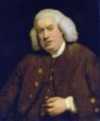 The music industry’s tendency to record, produce, and broadcast music at progressively increasing levels of loudness to create a distinct sound is known as the Loudness War. Because the maximum amplitude of recorded music cannot be increased, overall loudness can only be boosted by reducing the dynamic range of source audio and distorting recordings, leading to complaints from some audiophiles. What 1997 remix of a 1973 album is considered by some to be the loudest rock CD ever recorded? Discuss
The music industry’s tendency to record, produce, and broadcast music at progressively increasing levels of loudness to create a distinct sound is known as the Loudness War. Because the maximum amplitude of recorded music cannot be increased, overall loudness can only be boosted by reducing the dynamic range of source audio and distorting recordings, leading to complaints from some audiophiles. What 1997 remix of a 1973 album is considered by some to be the loudest rock CD ever recorded? Discuss
Source: The Free Dictionary
 ICANN is a nonprofit corporation that manages domain name systems, the assignment of IP addresses and protocol parameters, and root server systems. The original mandate for ICANN came from a US government proposal to privatize the management of Internet names and addresses to allow for the development of competition and to facilitate global participation in Internet management. Its functions are now performed under US Government contract. What are some criticisms of the organization?
ICANN is a nonprofit corporation that manages domain name systems, the assignment of IP addresses and protocol parameters, and root server systems. The original mandate for ICANN came from a US government proposal to privatize the management of Internet names and addresses to allow for the development of competition and to facilitate global participation in Internet management. Its functions are now performed under US Government contract. What are some criticisms of the organization?  This celebration is a grand fiesta devoted to Our Lady of Peñafrancia, held in
This celebration is a grand fiesta devoted to Our Lady of Peñafrancia, held in  Johnson was a British man of letters and one of the outstanding figures of 18th-century England. In 1755, after eight years of work, he published his monumental Dictionary of the English Language, considered the first great English dictionary. His aphorisms helped make him one of the most frequently quoted English writers. His biography, written by his contemporary James Boswell, is one of the most admired biographies of all time. How many entries did Johnson’s dictionary include?
Johnson was a British man of letters and one of the outstanding figures of 18th-century England. In 1755, after eight years of work, he published his monumental Dictionary of the English Language, considered the first great English dictionary. His aphorisms helped make him one of the most frequently quoted English writers. His biography, written by his contemporary James Boswell, is one of the most admired biographies of all time. How many entries did Johnson’s dictionary include?  A term coined by psychologist Carl Jung to describe what he called “meaningful coincidences,” synchronicity is the experience of two or more causally unrelated events that are conceptually similar and have very little chance of occurring together randomly—such as the discovery of the same idea by two different people at approximately the same time. Although Jung had introduced the concept of synchronicity in the 1920s, he did not fully explain it until when?
A term coined by psychologist Carl Jung to describe what he called “meaningful coincidences,” synchronicity is the experience of two or more causally unrelated events that are conceptually similar and have very little chance of occurring together randomly—such as the discovery of the same idea by two different people at approximately the same time. Although Jung had introduced the concept of synchronicity in the 1920s, he did not fully explain it until when?  The US Constitution embodies the fundamental principles upon which the American republic is conducted. It was drawn up at the Constitutional Convention in Philadelphia and signed in 1787, and it was ratified by the required number of states the following year. It superseded the Articles of Confederation in force since 1781 and established the system of federal government that began to function in 1789. It includes seven articles and a preamble. How many amendments have since been adopted?
The US Constitution embodies the fundamental principles upon which the American republic is conducted. It was drawn up at the Constitutional Convention in Philadelphia and signed in 1787, and it was ratified by the required number of states the following year. It superseded the Articles of Confederation in force since 1781 and established the system of federal government that began to function in 1789. It includes seven articles and a preamble. How many amendments have since been adopted?